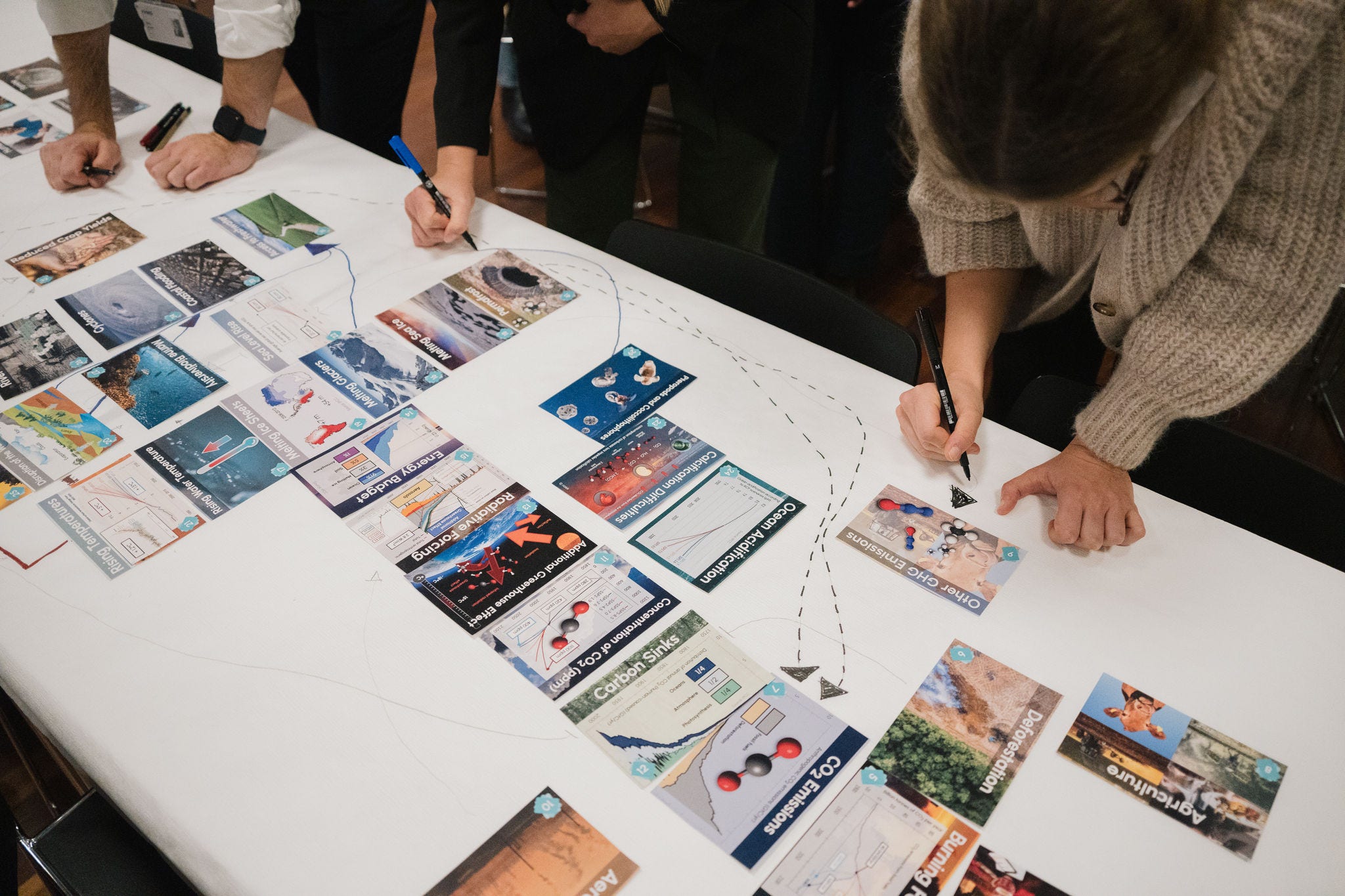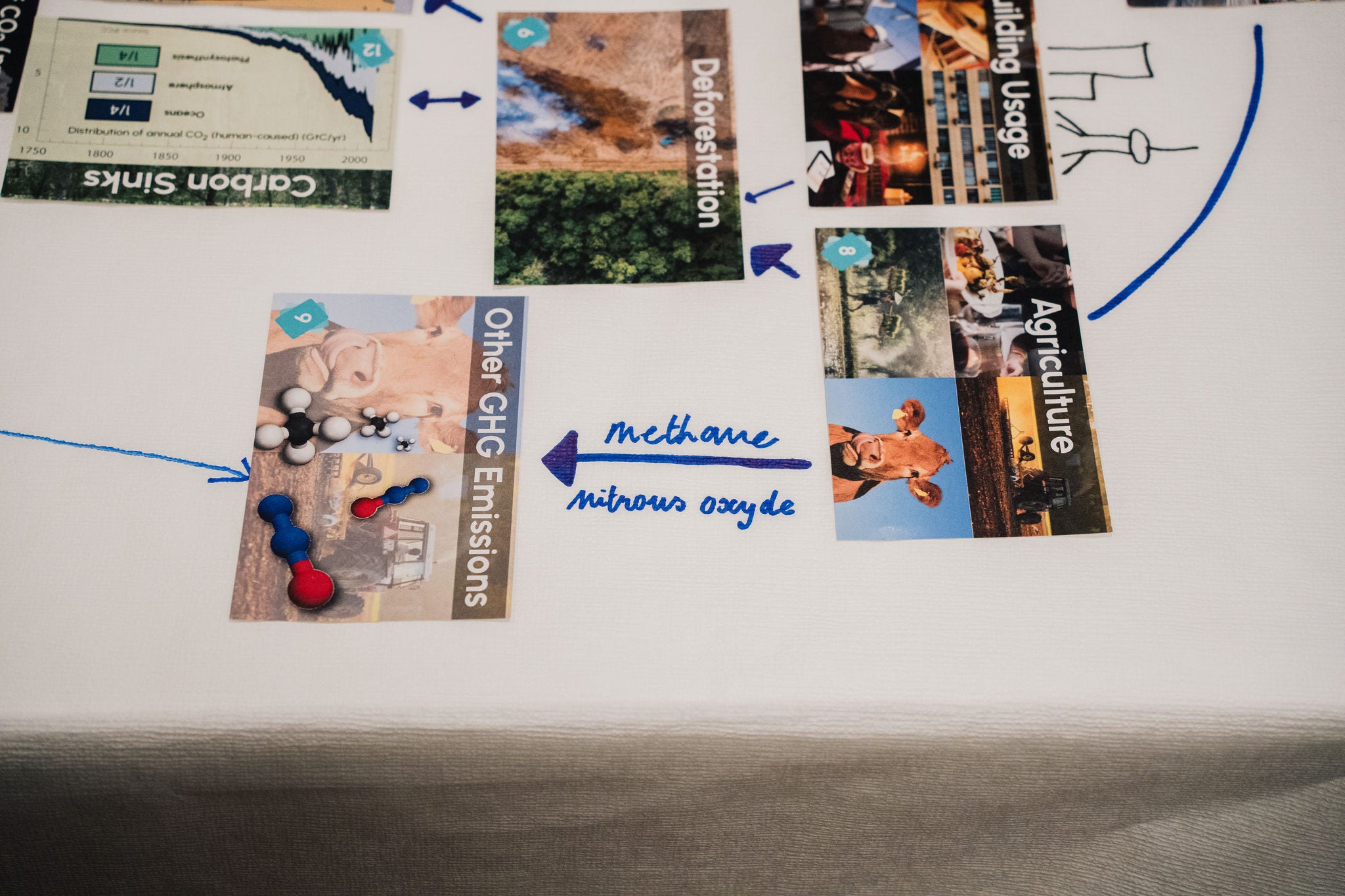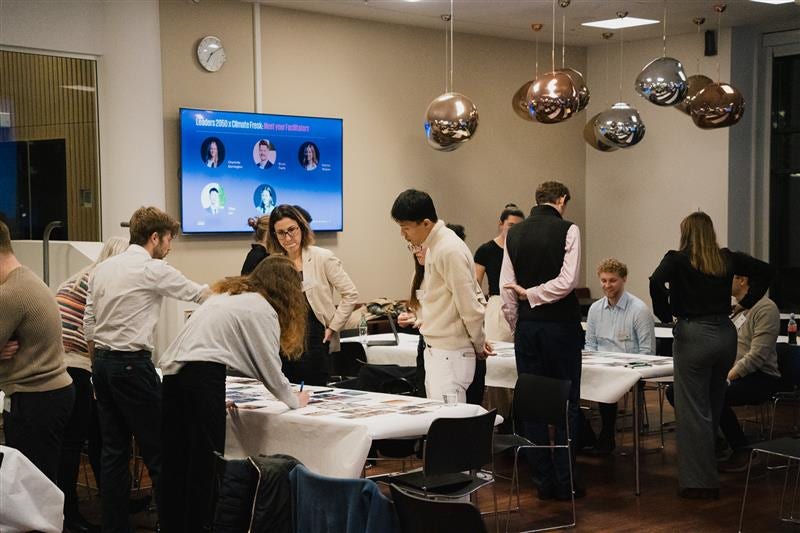Young people play a vital role in driving climate action. Their energy, creativity, and determination position them at the center of efforts to tackle the climate crisis. As future leaders, they will be instrumental in delivering net zero, yet their voices are often underrepresented in the climate debate.
So, what happens when you give them an interactive game that vividly demonstrates the intricate cause-and-effect relationship that characterises climate science?
This question came to life during an inspiring evening at the “Leaders 2050 x Climate Fresk” workshop, where we brought together young professionals from a diverse range of different industries and sectors at our Copenhagen office. The aim was clear: to deepen their understanding of climate science and collaborate on actionable strategies for sustainability initiatives.
Climate Fresk is an interactive game that distills complex climate science into an engaging experience. To gamify otherwise hard to grasp scientific processes, participants worked together to form their own ‘Fresk’, or mural, that demonstrates the cause-and-effect relationship of the key scientific elements that contribute to anthropogenic climate change, all sourced-on data from the most recent IPCC reports.







